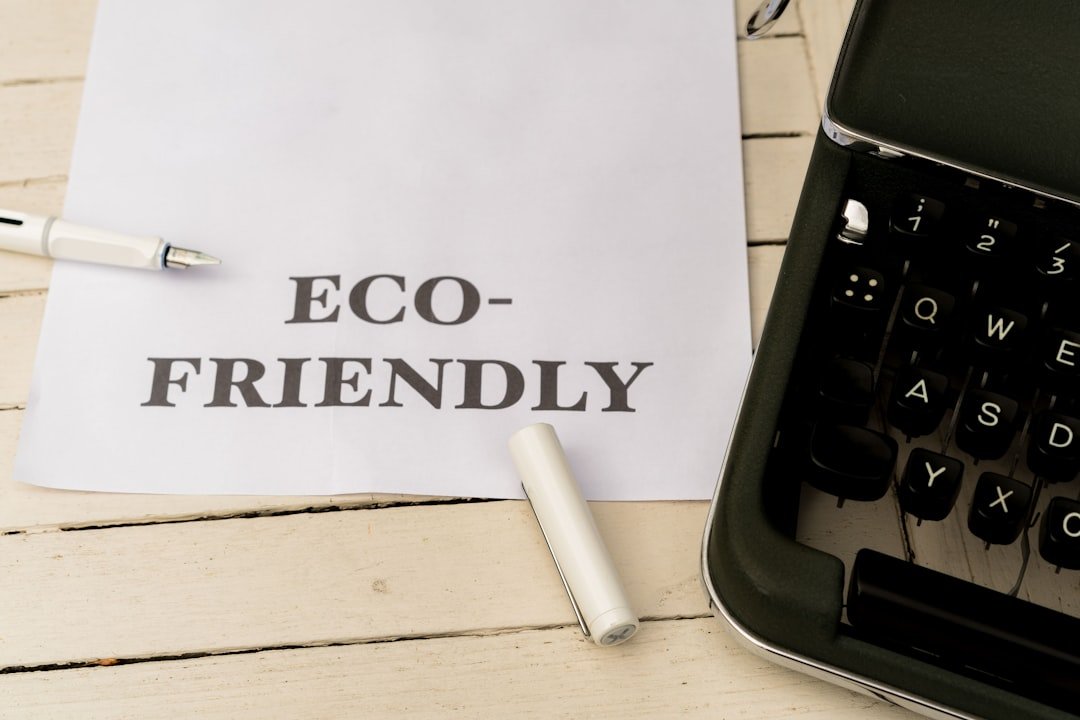Sustainability as a Marketing Trend: Building Eco-Friendly Brands
In today’s environmentally conscious world, sustainability is no longer a niche concern; it’s a mainstream movement reshaping consumer behavior and business strategies. For brands, embracing sustainability isn’t just an ethical imperative—it’s a powerful marketing trend with the potential to attract loyal customers, enhance brand reputation, and drive significant growth. This blog post explores how businesses can leverage sustainability to build eco-friendly brands that resonate with modern consumers.
The Rise of the Conscious Consumer
Consumers, particularly millennials and Gen Z, are increasingly demanding transparency and ethical practices from the brands they support. They’re actively seeking out products and services that align with their values, and sustainability is a key factor in their purchasing decisions. This shift in consumer behavior has created a significant opportunity for businesses to differentiate themselves by showcasing their commitment to environmental responsibility.
Integrating Sustainability into Your Brand
Integrating sustainability into your brand isn’t a one-size-fits-all approach. It requires a holistic strategy that permeates every aspect of your operations, from sourcing materials to packaging and distribution. Here are some key steps to consider:
Sustainable Sourcing
Prioritize sourcing materials from sustainable and ethical suppliers. This involves choosing materials with minimal environmental impact, supporting fair labor practices, and reducing reliance on unsustainable resources. Transparency is crucial here; consumers want to know where your materials come from and how they’re produced.
Eco-Friendly Packaging
Packaging is a significant source of waste. Explore sustainable packaging options such as recycled or biodegradable materials. Reduce packaging size wherever possible to minimize waste and transportation costs. Clearly communicate your commitment to sustainable packaging on your product labels and marketing materials.
Sustainable Manufacturing Processes
Evaluate your manufacturing processes to identify areas for improvement. Explore energy-efficient technologies, reduce water consumption, and minimize waste generation. Consider carbon offsetting programs to compensate for any unavoidable emissions.
Ethical Labor Practices
Ensure that your supply chain upholds ethical labor practices, including fair wages, safe working conditions, and respect for human rights. Transparency and accountability are essential to building trust with consumers.
Carbon Footprint Reduction
Measure and reduce your carbon footprint across your entire operation. This involves tracking your energy consumption, transportation emissions, and waste generation. Set ambitious targets for emissions reduction and regularly monitor your progress.
Marketing Your Sustainability Efforts
Once you’ve implemented sustainable practices, it’s crucial to effectively communicate your commitment to your target audience. Here are some effective marketing strategies:
Transparency and Storytelling
Be transparent about your sustainability initiatives. Share your progress, challenges, and future goals with your customers. Use storytelling to connect with your audience on an emotional level, highlighting the positive impact of your efforts.
Sustainable Certifications and Labels
Seek out relevant certifications and labels that validate your sustainability claims. These certifications provide third-party verification of your commitment to environmental responsibility and can build consumer trust.
Content Marketing
Create engaging content that educates your audience about your sustainability initiatives and the importance of environmental responsibility. This could include blog posts, videos, infographics, and social media campaigns.
Collaborations and Partnerships
Partner with other eco-conscious brands and organizations to expand your reach and amplify your message. Collaborations can provide access to new audiences and enhance your brand credibility.
Measuring the Success of Your Sustainability Initiatives
Regularly track and measure the impact of your sustainability initiatives. This will help you identify areas for improvement and demonstrate the effectiveness of your efforts to stakeholders. Key metrics to track include your carbon footprint, waste reduction, and consumer feedback.
Conclusion
Sustainability is more than just a trend; it’s a fundamental shift in how businesses operate and interact with the world. By embracing sustainability, brands can not only contribute to a healthier planet but also attract loyal customers, enhance their reputation, and drive long-term growth. Integrating sustainable practices into your business model and effectively communicating your commitment is key to building a successful and eco-friendly brand in today’s increasingly conscious marketplace.








